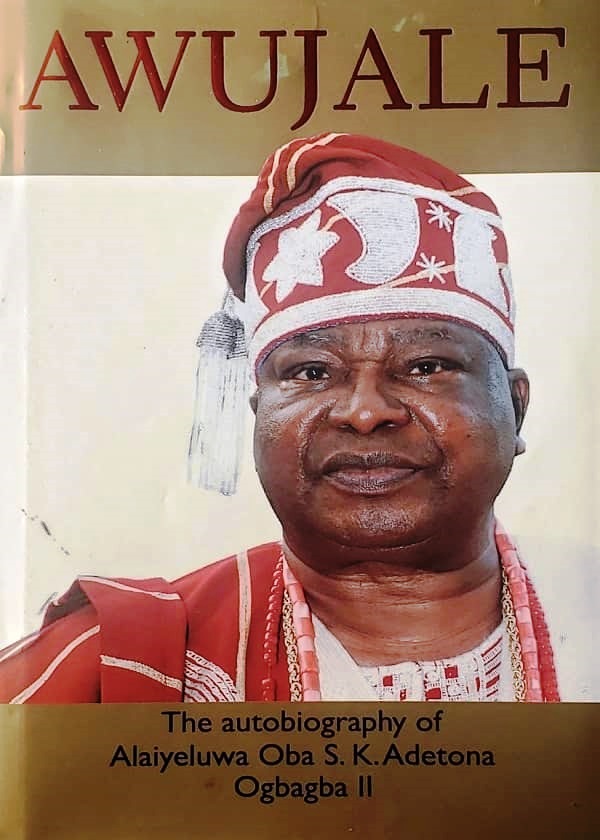The King Who Shook the System Even in Death
On July 13, 2025, Oba Sikiru Kayode Adetona, the revered Awujale of Ijebuland, breathed his last at the age of 91. While his death marked the end of a 65-year reign — the longest in Ijebu history — it was his controversial Islamic burial that sent shockwaves across Yorubaland and beyond.
What was expected to be a dignified and culturally rich send-off turned into a flashpoint for religious and traditional conflict. The traditional Osugbo cult, which historically performs royal burial rites in Ijebuland, was reportedly barred from participating, while Muslim clerics conducted the ceremony.
This blog post explores the legal, religious, and cultural tensions surrounding the Awujale’s burial and why this debate matters deeply for the future of Yoruba identity.
The Life and Legacy of Awujale Oba S.K. Adetona
Born in 1934, Oba Adetona was crowned as Awujale in 1960, becoming a symbol of resilience, modernization, and cultural diplomacy. Under his leadership, Ijebuland flourished politically and economically. But perhaps most defining was his unwavering commitment to preserving the dignity of the Ijebu throne — while embracing progressive reforms.
He openly identified as a Muslim, yet governed a kingdom steeped in traditional Yoruba spirituality. In his revealing memoir — AWUJALE: The Autobiography of Alaiyeluwa Oba S.K. Adetona Ogbagba II — the monarch chronicled his spiritual beliefs, political struggles, and reflections on what it means to rule a people of deep tradition in a changing world.

📚 Get the book here: https://sunshinebookseller.com/product/awujale-the-autobiography-of-alaiyeluwa-oba-s-k-adetona-ogbagba-ii
The Burial Day: Chaos at the Palace Gates
On the day of the burial, the palace gates were a scene of confusion. Members of the Osugbo traditional group, whose rituals have accompanied Awujale burials for centuries, were prevented from accessing the palace. Instead, Islamic prayers were said and the King was buried within hours of his death in accordance with Muslim rites.
“We were pushed back and denied entry. The burial was done hurriedly — against our customs,” said a member of the Osugbo cult, speaking to Premium Times.
The incident sparked uproar. Videos circulated online showing security agents stationed around the palace, ensuring that traditionalists were kept at bay.
Traditionalists Respond: A Threat to Heritage
The International Council for Ifa Religion (ICIR) did not stay silent. In a press conference days later, ICIR declared their intent to sue the Ogun State Government and the royal family for violating the Ogun State Traditional Rulers Law (2021).
According to ICIR President, Dr. Fayemi Fatunde Fakayode, the council believes that:
- The late Awujale’s burial violated cultural protocols passed down through generations.
- It was an illegal breach of the spiritual rites required to properly transition a Yoruba king.
- It sets a dangerous precedent for other traditional rulers to discard heritage.
Dr. Fakayode emphasized that this is not just about Ijebuland but about the entire Yoruba civilization.
Understanding the Ogun Chieftaincy Law (2021)
Interestingly, in 2021, the Ogun State Assembly passed a law allowing traditional rulers to be buried according to their personal religious beliefs.
Critics argue the law is ambiguous. While it respects personal faith, it doesn’t explicitly overrule traditional institutions like the Osugbo council. The tension now centers on which authority should take precedence — the law, the family, or tradition?
Legal analysts expect a landmark ruling from the court case, which may redefine how Yoruba kings are buried going forward.
Islam vs Tradition: A Battle of Ideologies?
This controversy exposes a deeper ideological battle. Across Yorubaland, similar conflicts have surfaced where monarchs refuse traditional rites in favor of Christian or Islamic practices. These monarchs argue that rituals like blood sacrifices or secret cult practices violate their faith and human rights.
“We must free kingship from ritual slavery,” said the Oluwo of Iwo, supporting the Awujale’s Islamic burial.
But traditionalists believe abandoning these rites is equivalent to cultural suicide. Many fear that sacred institutions are being eroded under the guise of modern religion.
What the People Are Saying
Social media in Nigeria exploded with reactions:
- @OmoIjebu: “Awujale should’ve been buried like the kings before him. This is betrayal.”
- @EriIfa: “Ifa is not happy. This is a war on Yoruba soul.”
- @SikiruWrites: “He lived his life as a Muslim. Why are people surprised?”
Public opinion is split, showing just how complex Yoruba identity has become in the 21st century.
What Does the Autobiography Say?
In AWUJALE: The Autobiography, Oba Adetona discussed many controversial aspects of Yoruba leadership — including secret societies, cultural reforms, and his Islamic faith. His decision to choose a Muslim burial may have shocked traditionalists, but the seeds were sown long ago in his own writing.
“I am committed to truth, not myth. I believe in God, not fear.” — Oba S.K. Adetona
Don’t just read about the controversy — read it from the man himself.
🛒 Get the Book: AWUJALE – The Autobiography of Oba S.K. Adetona
What Happens Now? Looking Ahead
The court case initiated by ICIR is expected to gain momentum over the coming weeks. Meanwhile, cultural leaders, royal families, lawmakers, and the public must ask:
- Should monarchs have absolute freedom over their burial?
- How do we balance personal faith and public tradition?
- Can Yoruba culture evolve without erasing its essence?
For now, the burial of the Awujale has unearthed more than just a monarch — it has unearthed a kingdom’s deepest dilemma.
What the Awujale Would Want
Perhaps the final chapter of this saga lies not in courtrooms or palace walls, but in the pages of Oba Adetona’s own book. As a man who walked the line between faith and culture, who embraced both the ancient and the modern, the late Awujale remains a figure of paradox and principle.
If you truly want to understand the legacy — and the logic — behind his final wishes, there is only one place to look:
📘 Read the autobiography. Know the monarch. Judge for yourself.






